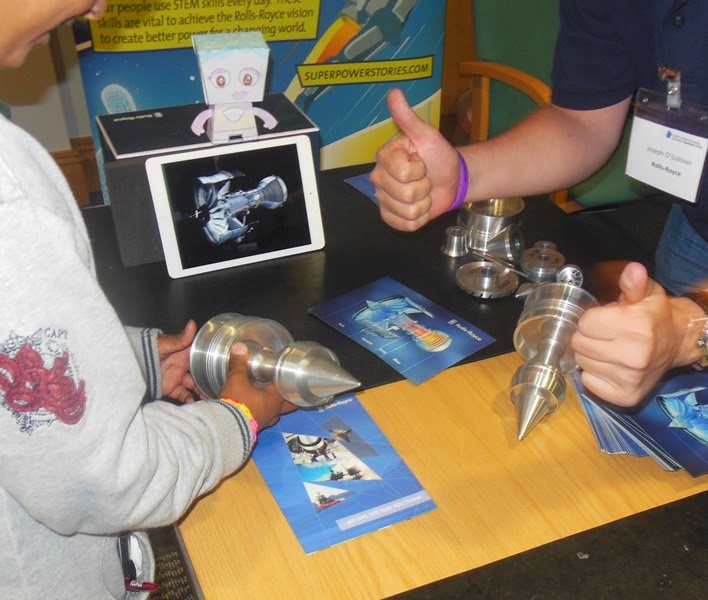Following a tip-off from @SmithJont, NSB and Sons No 1(thinking about a career) and 3(thinking about having fun with cool sciency stuff) went along to the Derby Manufacturing University Technical College's event at Rolls Royce.
Turned out to be quite an interesting gig. Lots of "proper" enginnering - production line technology, hydraulics, machining, robotics and much more.
Great, for example, to see that FESTO are suppporting the World Mechatronics Competition
And Derby University's "STEMpunk" team were also there to encourage some hands-on mechanical meddling.
Toyota's stand had a deceptively tricky dexterity challenge that left NSB in no doubt that he was too slow for the Toyota production line.
Oh, and there was a jet engine....made of LEGO...
More pictures here.
Turned out to be quite an interesting gig. Lots of "proper" enginnering - production line technology, hydraulics, machining, robotics and much more.
Great, for example, to see that FESTO are suppporting the World Mechatronics Competition
And Derby University's "STEMpunk" team were also there to encourage some hands-on mechanical meddling.
Toyota's stand had a deceptively tricky dexterity challenge that left NSB in no doubt that he was too slow for the Toyota production line.
Oh, and there was a jet engine....made of LEGO...
 |
| The Rolls Royce Training Centre is rather swish, and there was a good turnout of companies |
 |
| A jet engine - made of LEGO |
 |
| STEM Punk #didyouseewhattheydidthere? |
 |
| No1 Son putting together parts of a model jet engine |
More pictures here.